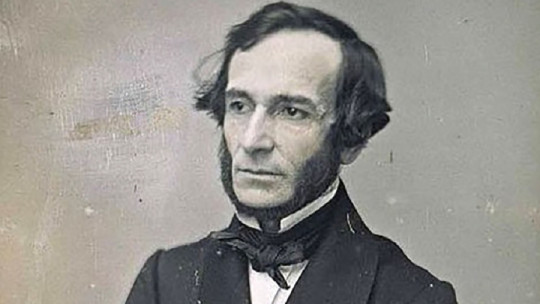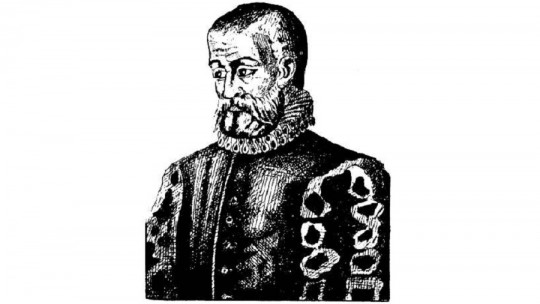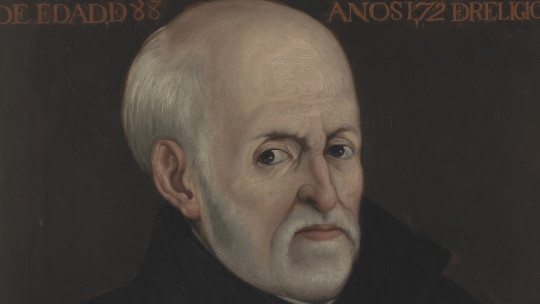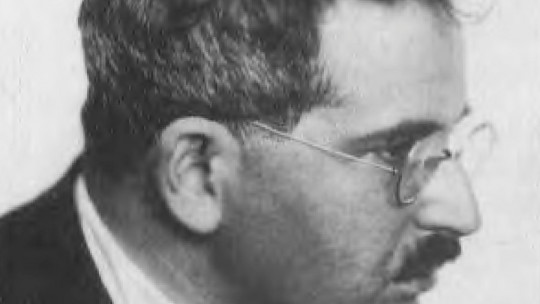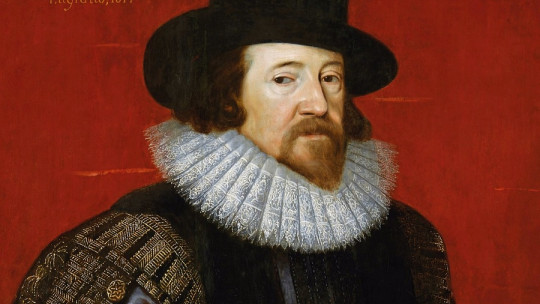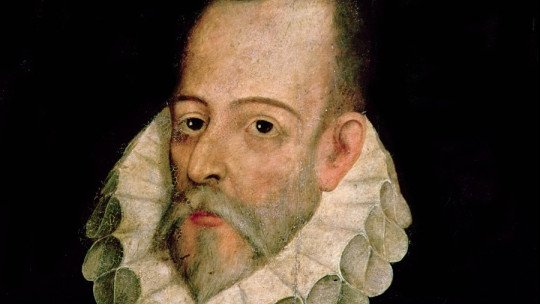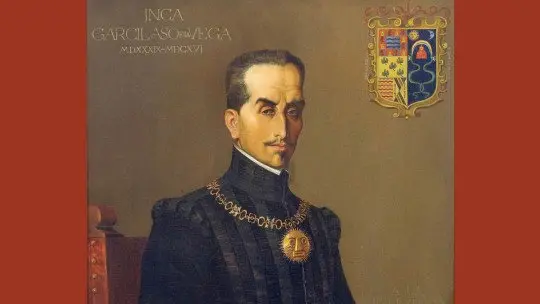Alberdi is one of the most prominent figures of the Spanish-American branch of liberalism who lived in the 19th century.
We will try to delve into the life of this author through a biography of Bautista Alberdi in which we will learn about the episodes that marked his life, what his most important contributions have been in the different fields he worked on, and therefore what the repercussions he has generated have been.
Brief biography of Bautista Alberdi
Juan Bautista Alberdi was born in 1810 in the Argentine province of San Miguel de Tucumán His origins were Spanish, since his father, Salvador Alberdi, was a merchant from Guipúzcoa, in the Basque Country. Salvador had a thriving pulpería, a typical food establishment. In addition, he also had political relevance in the conflict between Argentina and England, since he was one of those in charge of defending the capital.
As for his mother, Josefa Aráoz, she was of Creole origin, a member of one of the most important families in the city of Tucumán. Unfortunately, Josefa died giving birth to Juan Bautista Alberdi, so he grew up without a mother. Alberdi’s family took an active part during the May Revolution of 1810, a political event that lit the fuse for the future independence of Argentina, until then dependent on Spain.
Juan Bautista Alberdi’s father died when he was only 11 years old. Already orphaned by his father and mother, Juan was left under the guardianship of the rest of his siblings Alberdi thus began a stage in his life, this time in the city of Buenos Aires, where he moved to continue his education. He accessed the institution of the College of Moral Sciences thanks to a government grant.
After a few unstable years of abandonment and return to the academic world, Juan Bautista Alberdi He enrolled, first at the University of Buenos Aires, then at the University of Córdoba and finally at the University of Montevideo (Uruguay), to study jurisprudence a discipline in which he would later achieve the degree of doctor, in Chile.
He combined his academic training with training in the musical field, as he was a lover of this art and mastered different instruments, such as the piano, flute and guitar. In fact, the first work that Juan Bautista Alberdi wrote dealt with nothing less than this topic. It was titled The Spirit of Music.
Returning to San Miguel de Tucumán, he worked alongside Alejandro Heredia, governor of the region, preparing a work which he titled Descriptive Memory of Tucumán.
Youth and Generation of ’37
After his stay in Tucumán, Juan Bautista Alberdi decided to take the road to the Argentine capital again The year was 1835. During this time, the writer Marcos Sastre had founded the Literary Salon, a series of meetings where the authors of the so-called Generation of ’37 could chat and share their different points of view on different topics. Alberdi was one of the members.
The Generation of ’37 promoted democratic and liberal ideas They decided to continue the movement that had preceded them in the May Revolution. This group advocated for an intermediate solution that would satisfy those who advocated the construction of a unitary nation but also those who preferred a federalist model. Alberdi studied the political situation in depth to prepare his doctoral thesis.
This research led him to the development of his work, Preliminary Fragment to the Study of Law. In it he explored different ways to try to solve the problems in which Argentina was mired in these turbulent years. With it he laid the foundations of the legal historicism of this country.
It was the year 1837, a prolific year in which also He undertook the new project of creating a newspaper, which he named La Moda , where he dealt precisely with that topic, especially talking about the most important currents that existed on the European continent in those years. He also dealt with other arts, such as literature or music. Juan Bautista Alberdi himself used the pseudonym Figarillo to write in this publication.
However, La Moda had a short life. Just twenty-three issues later, this publication was forced to close.
Years in exile
During these years, the province of Buenos Aires was governed by Juan Manuel de Rosas, of whom Juan Bautista Alberdi was a firm opponent. Alberdi refused to swear allegiance to this institution, which began a political persecution of both him and the members of the Literary Hall, which had to be dissolved. A new association was secretly created, called La Joven Argentina, and its leader was Alberdi himself
But the situation was dangerous and many of them decided to leave Argentina. In the case of Juan Bautista Alberdi, his destination was Montevideo, the capital of Uruguay. It was a dramatic event, since at this time, he already had a partner and a young son, and he had to separate from them. He never became a father.
He had the opportunity to spread his ideas throughout Uruguayan lands, where they received great acceptance. He also had the opportunity to work, both as a lawyer, given his training, and as a journalist, a profession in which he also had previous experience. It was also the time in which he published two different plays. The first was titled The May Revolution, while the second was called The Poppy Giant.
Also He lived for a time in Chile, a country where he became a renowned lawyer and where he also managed to complete his doctoral thesis to earn the highest title in this discipline. This work was called “On the Expediency and Objects of an American General Congress.” In this work, the idea of creating a supranational body that would pool the interests of the Latin American regions was already advanced.
He also spent time in Europe, specifically in Paris, studying the work of Montesquieu, which was the seed for the creation of the constitutions of the flourishing countries of the American continent. He specifically studied the model of the US constitution, studying ideas for a future constitution for Argentina.
Fall of Roses and independence of Argentina
In 1852 the Battle of Caseros took place, where the Great Army, composed of different Argentine provinces, neighboring countries and exiles, destroyed the forces of the Argentine Confederation, a movement to which Governor Rosas belonged. This meant the return of those people who had previously had to flee the region, as was the case of Juan Bautista Alberdi
The study of other Magna Cartas gave Alberdi the ability to face the most important task of his life: preparing the ground for the new constitution that an independent Argentina would have to have. He published a first approach to this issue, called Bases and starting points for the political organization of the Argentine Republic.
The following year he would publish a new treatise as an extension of the previous one, entitled “Elements of Argentine provincial public law.” One of the keys that Juan Bautista Alberdi established as a basis for these documents was the liberal cut that was appreciated both in economic and political issues
Another work that he wrote along these lines was the Economic and Rentistic System of the Argentine Confederation. Finally, in 1853 the relevant authorities met in Santa Fe and sanctioned the new Constitution for the nascent country, using the documents that Juan Bautista Alberdi had prepared for this purpose, which is why he can be considered the father of the constitution. Argentina.
Diplomatic career and last years
After these events, Juan Bautista Alberdi was elected as a member of the diplomatic corps, for which he moved to Europe, with the aim of achieving international recognition of Argentina as a sovereign country, before the supporters of the creation of the State of Argentina achieved it. Buenos Aires, which sought the independence of that region.
Juan Bautista Alberdi achieved this purpose and the Argentine Republic became a reality In 1878, he returned to his native land, Tucumán, where he was elected as a deputy. This position lasted two years, when it was removed due to a conflict between two sectors that were fighting for the establishment of the capital, which finally fell on the side of Buenos Aires. The deputies who did not support this movement were removed from office.
In the year 1880, Juan Bautista Alberdi He was named honorary doctor by the University of Buenos Aires, specifically from the Faculty of Law By then his health was already very fragile, so he could not participate in the speeches. One of the students read his text for him. It was titled, The omnipotence of the State is the denial of individual freedom.
A final conflict with President Bartolomé Miter, who opposed the edition of his complete works, caused Juan Bautista Alberdi to emigrate to Paris, France, where he died in 1884.

